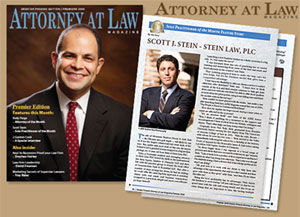Room For Improvement
New space being leased in any office, retail, or industrial property will need to be tailored for a particular tenant. Alternations can range from relocating interior walls or partitions to full blown construction with all the trimmings. Like most lease issues, deciding who will bear the costs associated with the build-out and how these funds will be secured are matters open for negotiation.
In some instances, tenants pay for everything, while in others the landlord will “give” the tenant all or a portion of the needed money by way of an improvement allowance. The improvement allowance can take many forms, from straight cash to free rent. Tenant improvement allowances are a means of financing the costs of the build-out using the landlord’s funds. As with any financing, these funds have a cost – which should be factored into any financial analysis of the deal (the monthly rental rate will be higher when the landlord is providing a tenant improvement allowance).
Several factors determine who winds up paying for the tenant improvements, including:
- which party will have easier access to the necessary funds for the improvements and the risks associated with the borrowed funds,
- who can get the work done most efficiently and cost effectively, and
- which party can benefit greater from available tax incentives.
If the landlord funds the tenant improvements, the unamortized portion of the cost of the improvements are typically repaid to the Landlord upon an event of default under the lease or other early termination event. Landlords often require a creditworthy guarantor to back the tenant’s obligations under the lease, including the repayment of funds included as the tenant improvement allowance. As the financial wherewithal of tenants and their parent entities has become more uncertain, Landlords should consider a sizable security deposit or letter of credit as an alternative to a guaranty.
In today’s market, tenants should also be cautious if they are the ones expending the cash to fund tenant improvements. Tenants should take steps to ensure that they will not lose the improved space if the property is foreclosed upon by the landlord’s lender. As previously highlighted in prior Stein Law Recent Developments (click here to view), tenants must obtain a Non-Disturbance and Attornment Agreement (NDA) to ensure that their lease will continue in full force and effect after the landlord’s interest is acquired by the foreclosing lender and that the tenant’s right to occupy the premises will not be disturbed. This is even more important where the tenant is spending its own funds or has agreed to receive a phased-in grant of “free” rent throughout the lease term as a way for the landlord to “payback” the funds.
We help landlords and tenants protect their real estate investments and make the right strategic decision in negotiating their commercial leases.
For more information please call (480) 889-8948, send an email to [email protected] or visit www.SteinLawPLC.com.
Speaking Engagements
Scott J. Stein will be speaking to the Scottsdale Area Association of Realtors (SAAR) (http://www.saaronline.com) Commerical Group on Wednesday, April 14, 2010, on recent trends in commerical real estate sales and leasing and ways in which brokers can protect their commissions.
In the News
Scott J. Stein was exclusively featured as the “Sole Practitioner of the Month” in the premier issue of Attorney At Law Magazine, a new magazine being launched for private practice attorneys in Maricopa County.


Scott J. Stein of Stein Law, PLC Top People to Know in Commercial Real EstateScott J. Stein was named among the 2009 Top People To Know In Commercial Real Estate by AZRE (Arizona Commerical Real Estate) Magazine in the Attorney category.
Remember to vote Stein Law, PLC!
Vote Stein Law, PLC on Ranking Arizona Magazine.
Visit www.Rankingazmagazine.com and search for Stein Law, PLC under the company names to vote.

(Attorney advertising material) Copyright © 2010 Stein Law, PLC. All rights reserved.
